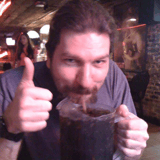Summary
Most efforts at advancing research to be more inclusive focus on methods or methodologies or participation. Though helpful, those efforts have unfortunately not been sufficient for inclusion and we continue to be constrained by stronger forces which go to the root of what research means and the definition of inclusion. To be fully unconstrained and reach true inclusion we must learn to let go. Do we have the ability to do that? Let's talk about that. Join us for a half-hour of becoming undone, joyfully.
Key Insights
-
•
Diversity in research teams does not inherently guarantee inclusivity or counter systemic oppression.
-
•
Awareness of power and identity positionality often leads to feeling stuck without clear action steps.
-
•
Our ways of being deeply shape our epistemologies and methodologies in research.
-
•
Colonial Western ways of being emphasize objectification and individualism, limiting emancipatory knowledge production.
-
•
Indigenous knowledge systems, like those of the iBio people, view knowledge as relational and emergent from relationships.
-
•
Songs and oral traditions can serve as valid research methodologies tied to indigenous ways of knowing.
-
•
Systems of value influence which knowledge is considered legitimate or beneficial, often marginalizing community knowledge.
-
•
Immigrant communities bring preserved ways of being that produce measurable health and social benefits.
-
•
Positive deviance in communities reveals untapped local wisdom that can guide effective interventions.
-
•
Radical participatory research requires researchers to relinquish control and let communities define methods based on their own ways of being.
Notable Quotes
"If diversity alone made research inclusive, then police could never be anti-black because they include black officers."
"Whiteness isn’t about color; people of all colors can reinforce white supremacy."
"Awareness leads to feeling stuck because we don’t know what to do or don’t feel empowered to act."
"Our ways of being are roots that grow into ways of knowing, doing, and methods, all nourished by systems of value."
"In Western modernity, if something is not an object, it is not real research or real knowledge."
"For the iBio people, knowledge is relational, not objectified, emerging from relationships like songs."
"Songs become methodologies—the way you identify who is at the door is through the song they sing."
"Colonial ways of being, knowing, and valuing will never produce emancipatory methodologies."
"Community-rooted wisdom like the Mexican 'guana' practice reduces postpartum depression without traditional research."
"Will you learn to let go? Better yet, will you let go?"
Or choose a question:
















More Videos

"With selfie pay, you take a picture, blink to prove it’s you alive, and authenticate in-app seamlessly and securely."
Karen PascoeDeveloping Experience Teams and Talent in the Enterprise
June 8, 2016

"We want our culture to be about the outcome, not about who owns what or who’s doing what on a piece of work."
Greg PetroffThe Compass Mission
March 10, 2021

"Are we excited to go to work in the technology industry to remove jobs and eliminate the human from the equation?"
Sam YenDriving Organizational Change Through Design? Do more of this and less of that
June 9, 2017

"Carbon removal is necessary to hit climate goals because reducing emissions alone won’t be enough."
Marissa Cui Rachel He Michael Leggett Manos SaratsisClimate Design Product Showcase
March 13, 2024

"Male universality is one of the leading causes of gender gaps."
Mansi GuptaWomen-Centric Research: What, Why, How
March 29, 2023

"It is okay to be vulnerable as a facilitator and to ask for co-facilitation with someone closer to the problem."
Robert Fabricant Sahibzada Mayed Nidhi Singh RathoreIndustry junctures: Paths forwards for UXR and the critical decisions that get us there [Advancing Research Community Workshop Series]
October 2, 2024

"Testing AI products requires longitudinal methods to see how relationships and experiences evolve."
Jonathan Fairman Kevin JohnsonIntegrating generative AI into enterprise products: A case study from dscout
June 5, 2024

"Hiring for fit is dangerous if you don't do it carefully, so we looked at fit for purpose—skills and ramp-up ability."
Tanya SnookDesigning the team experience: Building culture through onboarding
November 4, 2021

"Global mindset training includes simple things like teaching when to use email versus Slack given time zone differences."
Brennan HartichCommunicating and Establishing DesignOps as a New Function
November 7, 2018
















